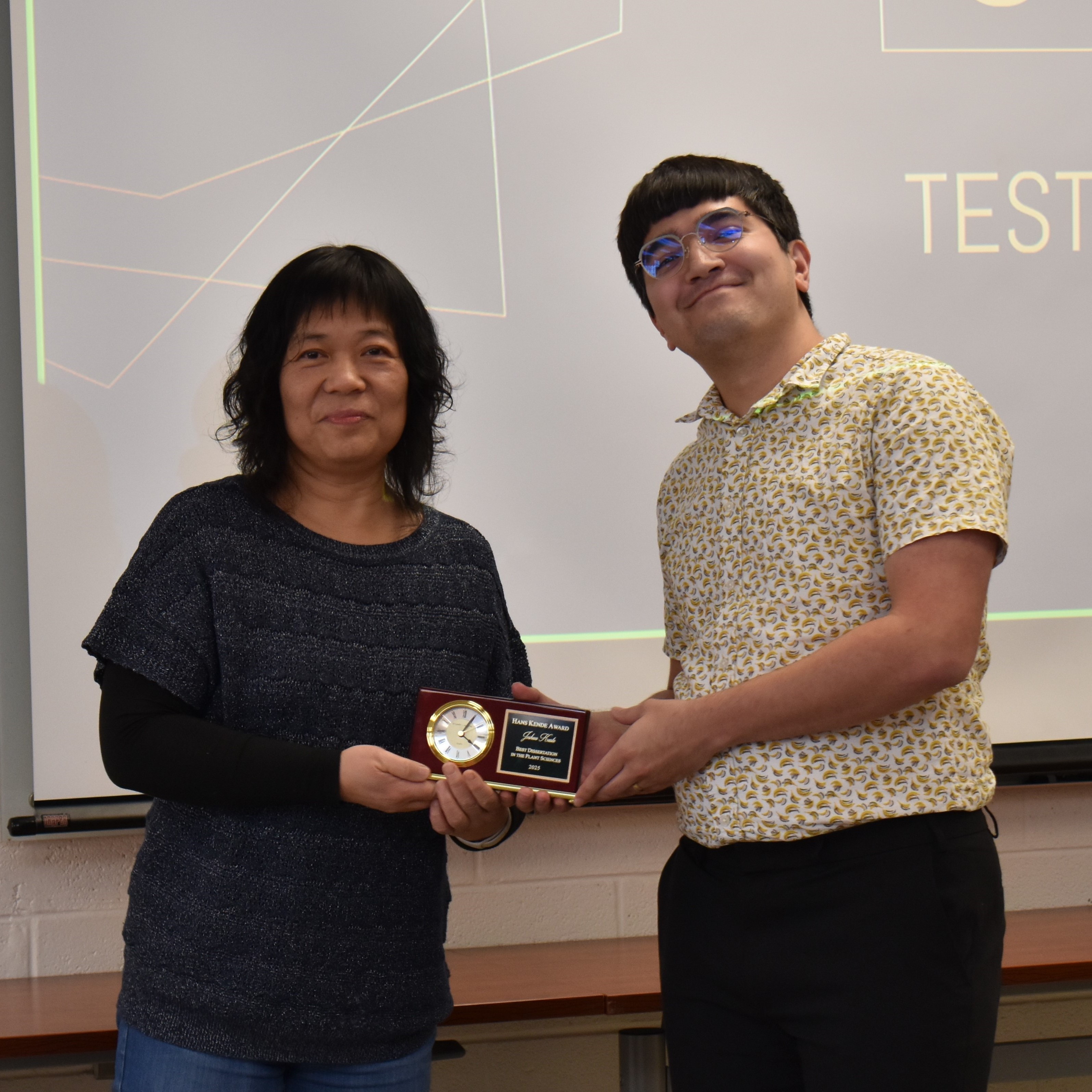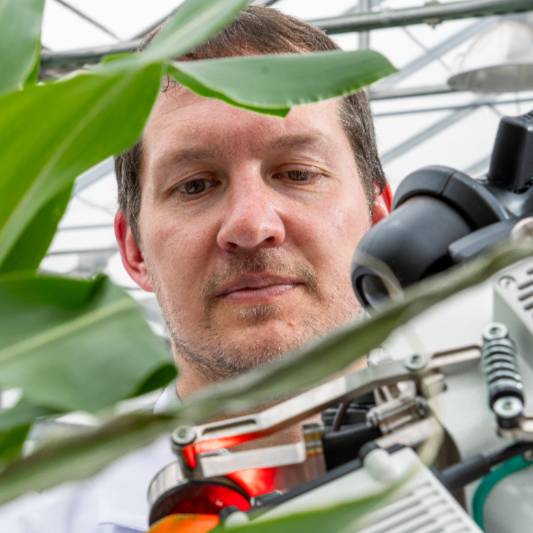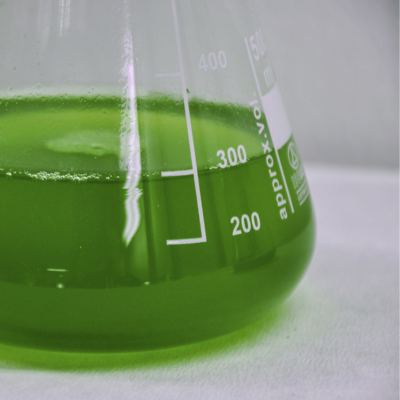Liana Acevedo-Siaca accepts Assistant Professor position at Wageningen University

By Kara Headley
Liana Acevedo-Siaca came to Michigan State University-Department of Energy Plant Research Laboratory, or MSU DOE-PRL in October 2022 as a postdoctoral researcher in David Kramer’s lab. She is now preparing to move across the Atlantic to the Netherlands to start as an Assistant Professor in the Horticulture and Product Physiology Group at Wageningen University in April 2024.
During her time at the PRL, she’s been able to give continuity to previously developed projects.
“Something that is very exciting about the Kramer lab is that there’s a lot of space to be very curious—you have the opportunity to try out your experiment many different times, test various approaches, and ask a lot of questions,” Acevedo-Siaca said. “Maybe the experiment is not always successful, but you always learn something out of it and can find new questions to ask.”
Acevedo-Siaca’s research is focused on understanding how plants and photosynthesis respond to fluctuating light environments and how those fluctuations interact with other potential abiotic stressors, such as temperature. Her current work at the PRL has focused on examining how photosynthesis is limited during short fluctuations in light, using field-based and controlled-environment approaches in chlorophyll fluorescence. This work aims to add to the body of work searching to better understand photosynthesis within the context of real-world, dynamic environments.

By Kara Headley
Outside of her work at the PRL, Acevedo-Siaca has been heavily involved in the broader scientific community. For example, she has been involved with the Society for Experimental Biology, or SEB, serving as the Deputy Chair of the Plant Section. In this role, she helps to organize the plant-science related sessions at the SEB annual meeting and coordinate other internal affairs. She is also involved with the Global Plant Council and the PRL Community Building and Outreach Committee. Across these groups, she’s been able to grow her network with researchers across the plant sciences. She said that she feels “very lucky” to work with these organizations.
“It was a nice coincidence,” Acevedo-Siaca said about the next step in her career. “When I initially came to MSU, I thought that if I could choose anywhere to go next or to go in the future, it would be Wageningen.”
Something about Acevedo-Siaca's new job that she’s looking forward to is the pivot from working primarily with field crops to horticultural crops.
“I don’t know what to expect in that regard, but I’m sure it’ll be a nice challenge and I’ll learn a lot along the way. But that’s the beauty of studying photosynthesis – the knowledge is transferable between different crops and cropping systems,” she said.
She is looking forward to the continued mentorship of students and forging new collaborations both within Wageningen University and across the greater plant science community.
When asked about Acevedo-Siaca and her success, David Kramer, Hannah Distinguished Professor in the Department of Biochemistry and Molecular Biology and at the PRL said: “Liana is an amazing, inspiring scientist. She’s fearless in tackling the hard problems and going to the places where the science takes her.”

By Kara Headley
Outside of work at MSU, Acevedo-Siaca was a member of choirs like Choral Union and Viridis. She would like to continue singing at Wageningen. Additionally, as someone who enjoys the outdoors, she’s hoping to translate her love for hiking into the popular cycling pastime in the Netherlands.
During her time at the PRL, Acevedo-Siaca has been able to “appreciate science for science’s sake.” She has always been interested in leveraging plant science research to work towards greater food security, “but at the PRL,” she said, “it’s more about answering fundamental questions that, in a certain way, you can be more curious and adventurous about.
“I’m thankful for the people, for the time that I spent here, and for what I’ve been able to learn so far. I didn’t expect it to be so short, but I’ve learned a lot.”



